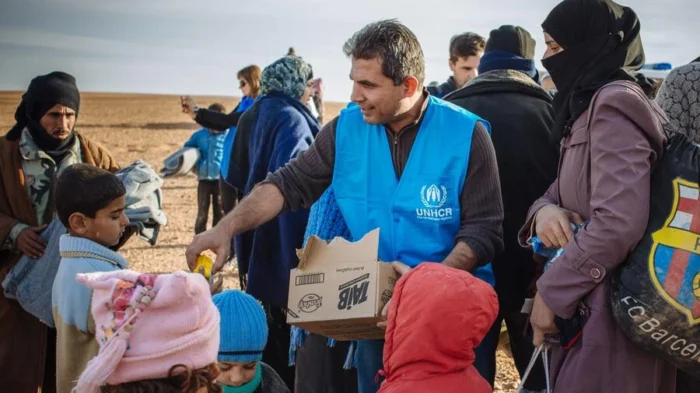World Refugee & Migration Council Statement, 22 September 2025
Recent executive actions and policy statements by the US administration point to a clear intent to dismantle the current international framework governing asylum and migration, sharply restricting the right to seek protection and threatening to renounce or undermine key conventions and treaties designed to safeguard refugees.
These moves include indefinite suspension of refugee admissions, near-total bans on southern border asylum access, mass expulsions without due process, and the return of restrictive measures such as the “Remain in Mexico” policy.
Such policy shifts not only erode the fundamental right to seek asylum but also signal a wider withdrawal of American support from multilateral institutions tasked with protecting human rights globally. These developments place immense pressure on other governments to similarly restrict access or reform domestic laws to limit eligibility thereby posing a direct challenge to the spirit and obligations under international law.
As the world’s nations meet for the United Nations General Assembly’s 80th Session, we urge all governments committed to international human rights to resist efforts to undermine the architecture of protection built since World War II for refugees and migrants.
The 1951 Refugee Convention — which will mark its 75th anniversary in 2026 — is the bedrock of the international refugee system that provides critical safeguards for the world’s most vulnerable, saving millions of lives. Abandoning these norms betrays decades of principled leadership and sets a dangerous precedent at a time when global displacement has reached record levels.
Governments around the world must stand firm against measures that deny protection to legitimate asylum seekers or erode the principles of fairness and due process. They must uphold both the letter and spirit of the Refugee Convention and related accords, ensuring that all those fleeing persecution have access to a fair hearing and meaningful protection.
These accords underpin human rights, collective security, and responsible international cooperation. Weakening their mechanisms undermines global stability and violates the shared commitment to dignity and justice forged in response to the horrors of the last century. The challenges of forced displacement require principled, multilateral responses — not isolation, exclusion, or retreat from established responsibilities.
While some reforms are necessary to take into account the changing nature of displacement — in particular displacement resulting from climate change — these should be directed at strengthening and not undermining the existing regime.
NGOs and civil society partners will continue to defend these principles and call on all governments to stand with those in need, preserving the universal rights and protections that define the postwar international liberal order.
———
El Consejo Mundial para los Refugiados y la Migración advances bold ideas and concrete actions for resetting the global response to forced displacement through international cooperation and responsibility sharing. Chaired by former Canadian Foreign Minister Lloyd Axworthy, Council members include leaders, practitioners and innovators from developing and developed countries across the globe.
Photo: A UNHCR staff member at the Jordan border hands out juice and biscuits to newly arrived Syrian refugees. Aid workers often work in dangerous areas to help the needy. ©UNHCR/J.Kohler
